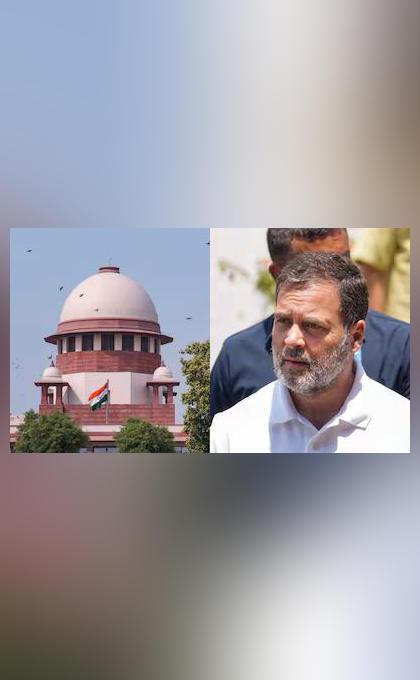
Why Ask on Social Media & Not in Parliament: SC to Rahul on ‘Land Grab’ Claim
The Supreme Court of India has recently made a stern remark against Congress leader Rahul Gandhi over his claim that China had grabbed 2,000 sq km of Indian land. The court, while staying a defamation case against Rahul for his remarks about the Indian Army, expressed its disappointment that Rahul chose to make such a sensitive claim on social media instead of asking questions in Parliament.
Rahul Gandhi’s statement in question was made in 2020, when he claimed that China had occupied 2,000 sq km of Indian land in the Galwan Valley. This remark sparked a heated debate in the political arena, with many questioning the accuracy of his statement. The Supreme Court’s recent rebuke of Rahul Gandhi has raised important questions about the role of social media in political discourse and the need for responsible and informed leadership.
The court’s sharp words were in response to Rahul’s argument that he was not aware of the details of the dispute and was only expressing his views based on the information available to him. The court, however, was not convinced, saying that Rahul’s claim was not only an accusation but also a serious allegation that required more than just a casual remark.
The court’s observations are significant because they highlight the importance of responsible leadership and the need for leaders to be informed and accurate in their statements. Social media has given leaders a platform to reach a vast audience, but it also requires them to be accountable for their words. The court’s rebuke of Rahul Gandhi serves as a reminder that leaders must be careful in their statements and ensure that they are not spreading misinformation or making reckless accusations.
The court’s decision to stay the defamation case against Rahul Gandhi is also noteworthy. The case was filed by a lawyer who had taken offense to Rahul’s remarks about the Indian Army. While the court’s decision to stay the case is a relief for Rahul Gandhi, it also raises questions about the limits of free speech and the need for responsible behavior by leaders.
The case has also sparked a debate about the role of social media in political discourse. Social media has given leaders a platform to reach a vast audience and express their views, but it also requires them to be accountable for their words. The court’s rebuke of Rahul Gandhi serves as a reminder that leaders must be careful in their statements and ensure that they are not spreading misinformation or making reckless accusations.
The court’s observations are also significant because they highlight the importance of Parliament as a platform for discussion and accountability. Parliament is where elected representatives can ask questions, hold the government accountable, and engage in constructive debate. The court’s rebuke of Rahul Gandhi serves as a reminder that leaders must use Parliament as a platform to engage in informed and responsible debate, rather than making reckless accusations on social media.
The case has also raised questions about the accuracy of Rahul Gandhi’s statement. While Rahul Gandhi has claimed that he was not aware of the details of the dispute, the court’s observations suggest that he should have been more careful in his statement. The court’s rebuke of Rahul Gandhi serves as a reminder that leaders must be accurate and informed in their statements, and that spreading misinformation or making reckless accusations can have serious consequences.
In conclusion, the Supreme Court’s rebuke of Rahul Gandhi over his ‘China grabbed 2,000 sq km of Indian land’ claim is a significant development in the political arena. The court’s observations highlight the importance of responsible leadership, accurate information, and the need for leaders to use Parliament as a platform for discussion and accountability. The case serves as a reminder that leaders must be careful in their statements and ensure that they are not spreading misinformation or making reckless accusations.






